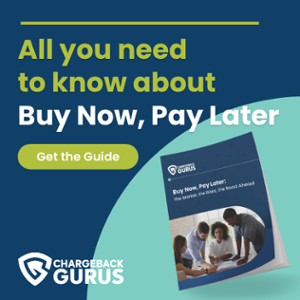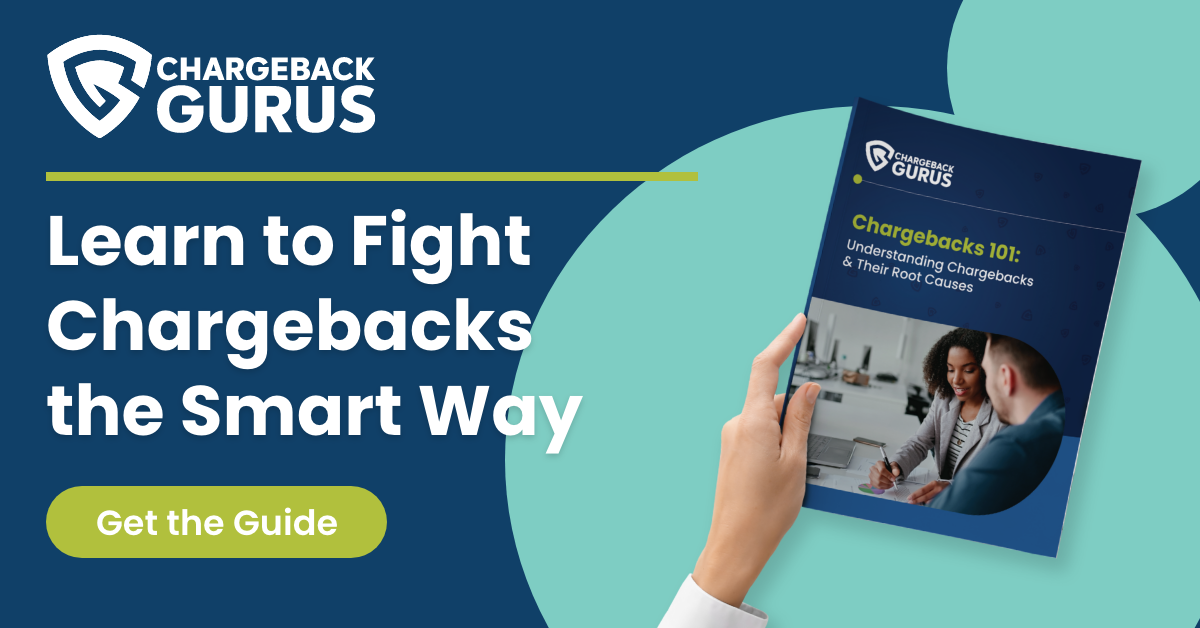The Visa Chargeback Arbitration Process

Some chargebacks are hard to shake off. You may have attempted to fight it off with your strongest evidence, but then you get word that the issuer is still upholding the dispute, and if you’re not willing to back down, it will go to arbitration—a costly process that can play out in very different ways depending on which card network is involved.
While you’re usually better off avoiding arbitration, it can be your last chance to win back disputed revenue, and it’s worth understanding how each card network handles it. What do merchants need to know about navigating the Visa chargeback arbitration process?
 Usually, chargebacks are resolved fairly quickly. If the dispute claim is valid, or if you choose not to fight it, the chargeback is accepted and everyone moves on.
Usually, chargebacks are resolved fairly quickly. If the dispute claim is valid, or if you choose not to fight it, the chargeback is accepted and everyone moves on.
The process lasts longer when merchants fight back with chargeback representment, but if the facts and evidence are on your side you should be able to expect the matter to be resolved once the issuer hears you out.
This is not always what happens. Sometimes, the issuing bank sides with their cardholder, or the cardholder shows them additional evidence that puts things into question. When that happens, the chargeback is usually said to be in the pre-arbitration phase. At this point, merchants have a choice to either accept liability or ask the card network to hand down a final verdict.
Taking a dispute to arbitration can be risky. Every card network has their own unique rules for this part of the dispute process, and there are usually hefty fees involved, especially for the losing party. Unlike representment, which should always be attempted when a chargeback is invalid and you have evidence to prove it, arbitration is not always the best option—even when you believe you are in the right.
How Does Visa Chargeback Arbitration Work?
A few years back, Visa overhauled their process for handling disputes and chargebacks. Chargebacks follow one of two different workflows, depending on the nature of the dispute:
- Disputes related to fraud and authorization issues follow the Allocation workflow.
- Customer disputes and processing errors follow the Collaboration workflow.
Either workflow can terminate in arbitration, but they reach the pre-arbitration step at different points. The Allocation workflow is meant to be efficient and accurate in assigning liability to the responsible party, and most reason codes associated with this workflow have very narrow parameters for what can be considered “compelling evidence” to reverse the chargeback.
Disputes of a more subjective nature go through the Collaboration workflow, which encourages more back-and-forth between the disputing parties in the hopes that an equitable solution can be reached.
When a dispute does end with arbitration, Visa’s decision is final and cannot be appealed any further, unless somebody is willing to file a civil lawsuit over it. If Visa rules in favor of the cardholder, the merchant is assessed a $500 arbitration fee on top of any chargeback fees they’ve already paid.
What Is the Allocation Workflow for Visa Disputes?
The Allocation workflow generally where true fraud and merchant fraud disputes end up. Here’s how it proceeds:
- The cardholder disputes a transaction.
- Visa applies a standardized set of rules to the dispute claim. They may request additional information from the acquirer.
 If the claim is found to be valid per the rules, the transaction will be reversed and the merchant notified of a chargeback.
If the claim is found to be valid per the rules, the transaction will be reversed and the merchant notified of a chargeback.- The merchant can either accept the chargeback or fight it by submitting compelling evidence and a representment of the transaction.
- Visa considers an Allocation dispute to be in pre-arbitration if the merchant chooses to contest it. If the issuer agrees with the merchant, they will reverse the chargeback and end the dispute process.
- If the issuer rejects the merchant’s counter-claim, the chargeback will remain in place. Merchants have limited opportunities to fight back at this point, and the evidentiary requirements will be very specific.
- If the merchant is able to send additional evidence, Visa will make a final, binding decision.
What Is the Collaboration Workflow for Visa Disputes?
Many disputes cannot be easily resolved by applying a standardized ruleset. They may involve complaints about billing practices, missing deliveries, or false advertising. These disputes are sent through the Collaboration workflow:
- The cardholder disputes a transaction.
- While the issuer may contact the acquirer for more information, Visa no longer requires this step. Once the dispute is filed, the issuer will reverse the transaction and notify the merchant about the chargeback.
- The merchant can either accept the chargeback or fight it by submitting compelling evidence and a representment of the transaction.
- If the merchant chooses to fight the chargeback, the issuer will reverse it and review the evidence. This is considered to be the pre-arbitration phase of the Collaboration workflow. If the issuer takes the merchant’s side, the dispute process ends here.
- If the issuer is not persuaded by the merchant’s evidence, or if the cardholder provides additional information, they will file a second chargeback.
- The merchant can either accept the second chargeback or ask their acquirer to pursue arbitration.
- If arbitration is chosen, Visa will make a final, binding decision.
What Are the Time Limits for Visa Chargeback Arbitration?
Once the pre-arbitration phase is reached, the acquirer only has thirty days to respond, which usually means even less time for the merchant. Merchants should always review the latest edition of the Visa rules to confirm any relevant timeframes and deadlines they need to follow.
When Should Merchants Pursue Chargeback Arbitration?
It can be frustrating when an issuer rejects your chargeback representment, but you should always try to look at the case with an objective eye. It may be that you know the dispute claim is false, but your evidence just isn’t solid enough to refute it. It’s better to walk away cut your losses rather than go for arbitration and lose an additional $500 on principle.
Arbitration can be a last-ditch measure to fight a very expensive dispute over a high-value transaction. If the revenue in jeopardy is significant enough that it’s worth risking the additional fees, it might make sense to take your chances with Visa’s judgment.
Conclusion
We wouldn’t want to see a chargeback process that gives the issuing bank the final say with no chance for appeal, but the reality is that it’s usually not worth it for merchants to risk losing even more money on a contentious dispute.
Your best strategy for dealing with arbitration is to avoid it by choosing your battles carefully.
Every chargeback should be analyzed when you receive it, and chargebacks with a valid basis should just be accepted. You should always fight illegitimate chargebacks, but first make sure you have the right evidence. The reason code should clue you in to which documents are needed. When you engage in chargeback analysis and maintain thorough transaction records, you can implement a chargeback management process that sets you up to succeed.
Thanks for following the Chargeback Gurus blog. Feel free to submit topic suggestions, questions, or requests for advice to: win@chargebackgurus.com



